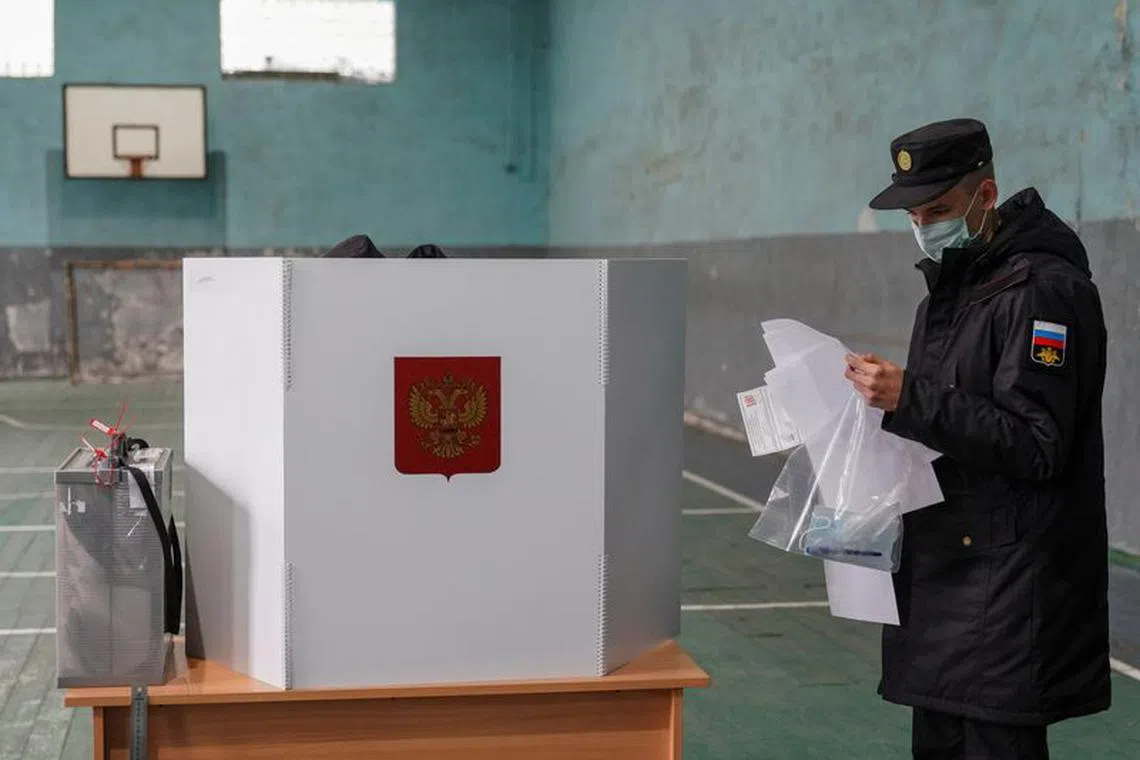Russia to hold presidential election on March 17, 2024
Sign up now: Get ST's newsletters delivered to your inbox

Residents of parts of Ukraine annexed by Russia are expected to take part in the vote, Moscow said.
PHOTO: REUTERS
MOSCOW - Russia’s Upper House of Parliament voted on Dec 7 to set March 17 as the date for the 2024 presidential election.
The decision was passed unanimously by 162 votes in the Federation Council.
“With this decision, we are effectively launching the start of the election campaign,” Ms Valentina Matviyenko, head of the Federation Council, said.
She added that for the first time, residents of the parts of Donetsk, Luhansk, Zaporizhzhya and Kherson regions of Ukraine annexed by Russia would take part in the vote. “By choosing a head of state together, we fully share the common responsibility and common destiny of our fatherland,” she said.
Mr Vladimir Putin, a former KGB foreign intelligence agent who has been in power either as president or prime minister since 1999, has not officially announced if he will run for another six-year term.
The 71-year-old is due to hold an end-of-year press conference next week, where he could announce his candidacy. It will be the first time he holds such a press conference since he ordered Russian troops into Ukraine in February 2022.
Mr Putin would be running for a fifth presidential term. Following a constitutional reform in 2020, he could stay in power as president until 2036.
Since launching the campaign in Ukraine, Mr Putin has become a pariah among Western leaders and his country has been hit by unprecedented sanctions.
But the Kremlin chief has become increasingly confident in recent weeks as Western support for Ukraine has frayed and Ukraine’s counter-offensive has largely failed to pierce Russian lines.
The Russian economy has also proved resilient against sanctions and is growing again as Russia re-orients its energy exports to Asian clients.
After his first two presidential terms, Mr Putin briefly became prime minister between 2008 and 2012 while his protege Dmitry Medvedev became president.
The switch was to get around a constitutional ban on more than two consecutive presidential terms.
During his long rule, Mr Putin has silenced dissent and turned Russia towards authoritarianism and nationalism.
Almost all opposition figures have either been imprisoned, are in exile or have been killed in murky circumstances.
Since the start of the war in Ukraine, Russia has imprisoned opponents of the war with beefed-up legislation outlawing criticism of the army. REUTERS, AFP


